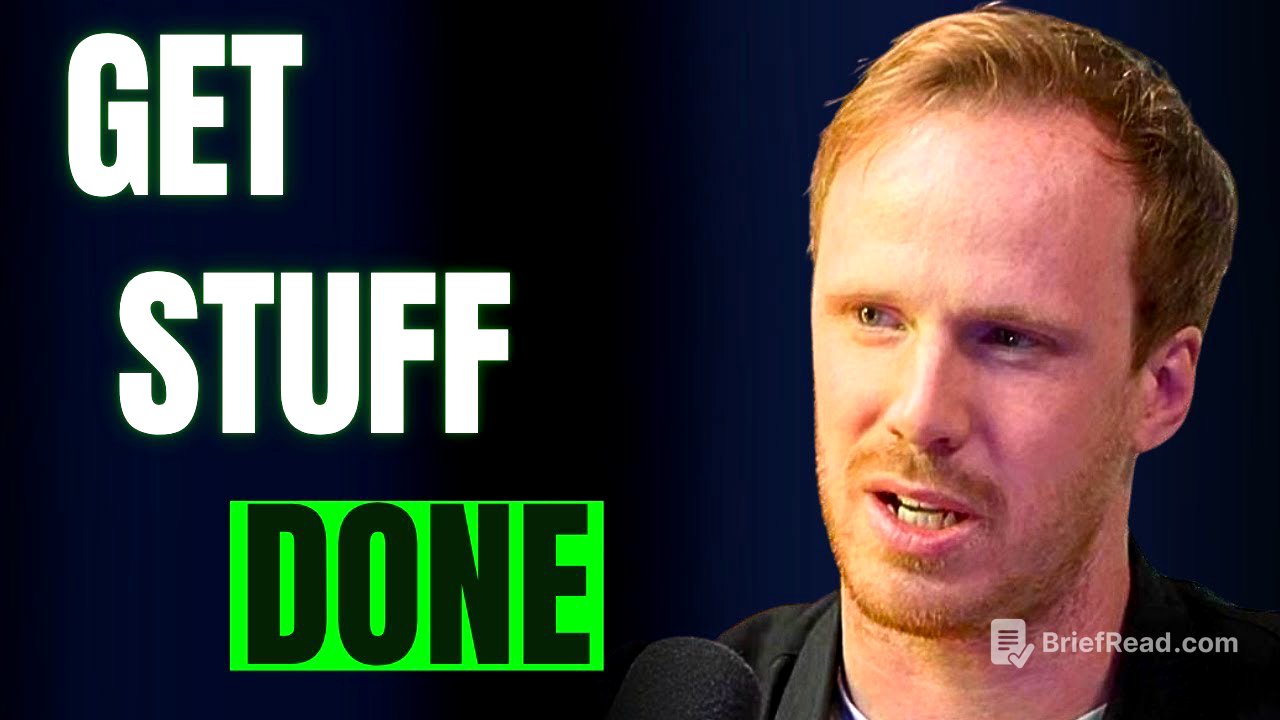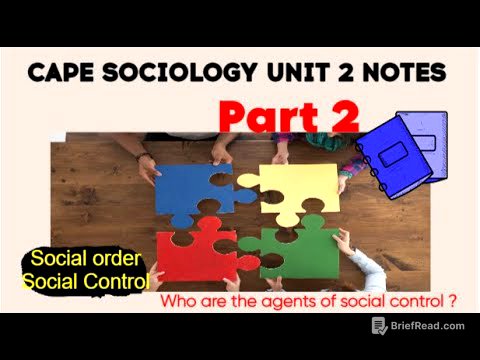TLDR;
This podcast episode presents 17 ADHD hacks that have been tried and tested by individuals with ADHD, along with user-submitted tips. The hacks range from memory aids and productivity techniques to strategies for managing impulsivity and improving self-awareness. The ultimate goal is to provide practical solutions that address common challenges faced by people with ADHD, helping them to improve their daily lives and achieve their goals.
- Memory aids and reminders
- Productivity and time management
- Self-awareness and emotional regulation
Memory bracelets [2:26]
This hack involves using rubber bracelets to remember and track high-priority tasks. In the evening, when focus is optimal, list five important tasks for the next day and write each on a bracelet. Wear the bracelets as a reminder and remove them as tasks are completed, placing them in a bowl. Completing all tasks leads to a reward, like buying something from an Amazon wish list. Additionally, placing bracelets on the washing machine serves as a reminder to empty it.
Body doubling [4:06]
Body doubling is a phenomenon where having someone else present while working on a task can provide motivation and accountability. This can be done in person or virtually via a Zoom call. The mere presence of another person can help overcome procrastination and provide the energy needed to start and complete tasks. It helped with writing a book by working in the same room as someone else or in a co-working space.
Frozen chopped vegetables [6:25]
Buying pre-chopped frozen vegetables can save money and reduce the friction of cooking healthy meals. Fresh produce often goes bad before it can be used, leading to waste. Frozen vegetables don't spoil and are readily available for cooking. Buying pre-chopped or kids pre-chopped food can increase accessibility and the likelihood of consumption before spoilage, making it worth the extra cost.
Toothbrushes [7:49]
Keeping a toothbrush (or disposable one) by the bed can help those with ADHD who struggle with dental hygiene. Brushing teeth is often forgotten or avoided due to low dopamine and high effort. Having a toothbrush readily available makes it easier to quickly brush before falling asleep, reducing the risk of dental problems.
Clothes bins [9:59]
Using three labeled bins in the wardrobe can help organize clothes: one for dirty clothes, one for clean clothes ready to be hung up, and one for clothes that are not dirty but can be worn again. This system prevents clothes from being thrown on the floor, reduces the need to wash clothes unnecessarily, and keeps the wardrobe tidy.
Chargers [10:59]
Placing phone chargers in every frequently used area of the house ensures that the phone can always be charged, preventing the phone from running out of battery.
Icebergs [11:25]
Breaking down large tasks (icebergs) into smaller, more manageable tasks (ice cubes) can prevent overwhelm. For example, cleaning a flat can be broken down into smaller tasks like cleaning the sink or hoovering a part of the living room. On days with burnout, ice cubes can be broken down even further into crushed ice.
The 2 minute rule [13:03]
Committing to do a task for just 2 minutes can help overcome procrastination. For example, instead of planning to clean the whole flat, commit to cleaning for 2 minutes. This can create momentum and dopamine, making it easier to continue and complete the task.
The ideas shelf [14:13]
When an impulsive idea arises, such as starting a new business or hobby, place it on a metaphorical "idea shelf" instead of acting on it immediately. If the idea still holds interest after a week, it may be worth pursuing. This helps manage impulsivity and prevents burnout from starting and abandoning projects.
Reusable shopping bags [18:02]
Keeping many reusable shopping bags in the car and setting a Google Maps notification to remind you to grab one when arriving at the supermarket can prevent buying new bags due to forgetting them.
Can I let you know tomorrow [19:19]
Instead of immediately saying yes to requests, respond with "Can I let you know tomorrow?" This creates a gap between the request and the response, helping to avoid overcommitment and people-pleasing tendencies driven by Rejection Sensitive Dysphoria (RSD).
Tiimo advert [20:29]
Tiimo is a planning app designed by neurodivergent brains for neurodivergent brains, offering features like an AI planning assistant and voice transcribing service.
Don’t put it down, put it away [21:49]
Instead of putting things down wherever you are, put them away in a cupboard or drawer. This mantra helps prevent the flat from becoming messy and reduces feelings of shame and embarrassment.
Free subscriptions [22:36]
Cancel free subscriptions immediately after signing up to avoid being charged when the trial period ends. You'll still get the free time, but you won't get charged again.
Always look back [24:09]
When leaving a place, such as a plane, train, or restaurant, always look back to check for forgotten items. This simple habit can prevent losing things left behind.
2 things at once [26:31]
Take advantage of moments of motivation by doing two tasks simultaneously. For example, while cooking dinner, start cleaning the flat. This maximizes productivity by using the motivation from one task to accomplish another.
Under one minute [27:04]
Challenge yourself to complete tasks in under a minute or in the time it takes for a favorite song to finish. This makes tasks more fun and engaging, helping to get them done quickly.
Self awareness [27:51]
Working on self-awareness is the most important ADHD management tool. ADHD is more a deficit of self-awareness because of years of masking and pretending to be someone that you're not. Ask yourself questions like: What happened today that made me happy? What happened today that made me sad? What happened today that I found easy? What happened today that I found hard? Pay attention to knee-jerk reactions, which are signals from your inner child before the mask takes hold.
Audience submitted hacks [36:26]
- Do not sit down: Avoid sitting down to maintain momentum and prevent getting trapped by social media or other distractions.
- Schedule appointments as early as possible: Schedule appointments early to avoid spending the day in "waiting mode," which can block productivity.
- Box theory: When cleaning, bring a box into the room and put anything that doesn't belong in that room into the box. Take care of the box items later to stay on task.
- Smooth brain day: Have one day a week where you let ADHD take the wheel with no rules.
- Putting on shoes to get tasks done: Putting on shoes can create a sense of purpose and motivation to get tasks done.
- Lie flat on the dirty floor: When struggling to vacuum, lie on the dirty floor to see the dirt up close, which can be gross and motivating enough to start cleaning.
- Invite guests over: Inviting guests over creates urgency and accountability to clean the house quickly.
- Wear uncomfortable clothes: Put on uncomfortable jeans and shoes and don't take them off until the task is done.
- Hide money around the apartment: Hide $20 bills around the apartment and wait until you have no money for food, forcing you to clean to find the money.
- Leave keys in the fridge: Leave keys in the fridge as a reminder to take your lunch.
- Pretend I'm on live camera all the time: Pretend you're on live camera all the time.









